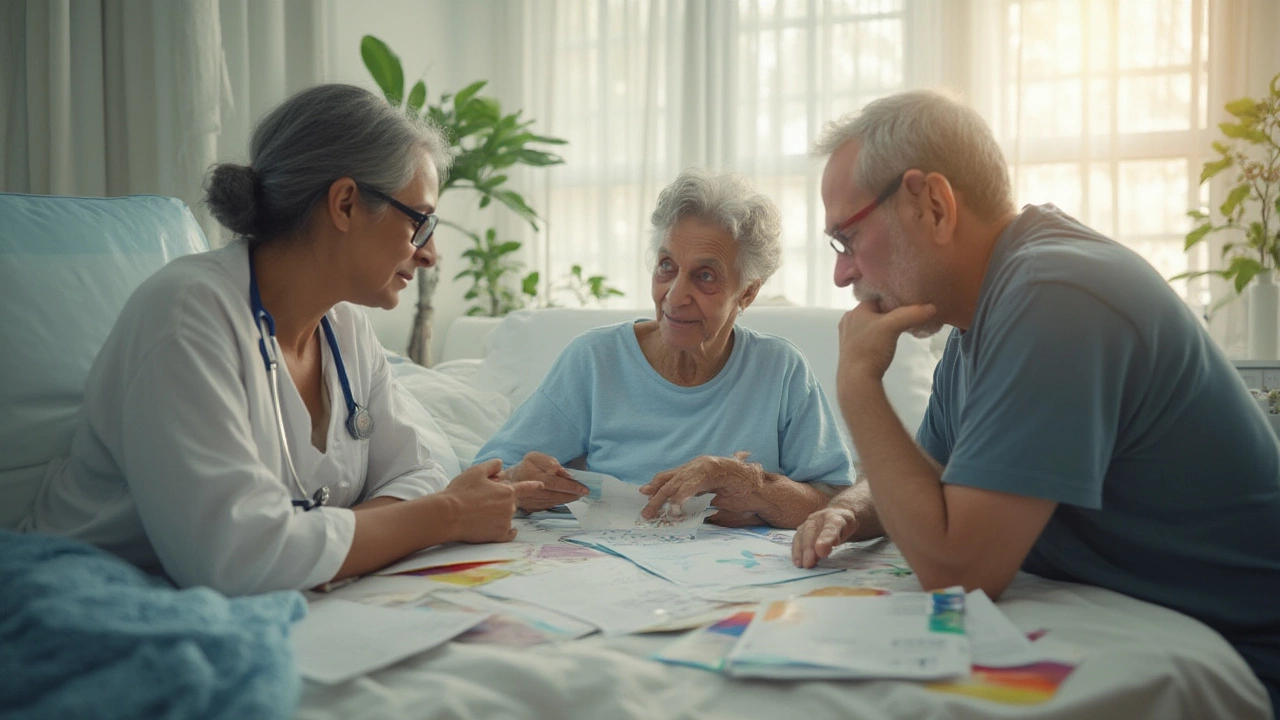Late Stage Cancer Treatment: Options, Challenges, and Hope
When talking about late stage cancer treatment, the medical approach used once cancer has advanced to a terminal or near‑terminal stage. Also known as advanced cancer therapy, it focuses on extending survival, managing symptoms, and preserving quality of life. The term directly relates to stage 4 cancer, cancer that has spread beyond its original organ to distant sites and often involves palliative care, a multidisciplinary effort to relieve pain, fatigue, and emotional distress. Understanding these connections helps patients and families weigh aggressive options against comfort‑focused strategies.
Key Treatment Pathways and How They Interact
Late stage cancer treatment encompasses several therapeutic streams. Traditional chemotherapy remains a backbone, delivering drugs that target rapidly dividing cells, yet its side‑effects can be severe when disease burden is high. Radiation therapy can shrink tumors in specific locations, often combined with chemo to boost effectiveness. Meanwhile, immunotherapy, treatments that harness the body’s immune system to attack cancer cells has reshaped outcomes for many patients, especially those with melanoma or lung cancer. Targeted therapy zeroes in on genetic mutations, offering a precision strike with fewer collateral damages. When standard options are exhausted, clinical trials, research studies testing new drugs or combinations become a vital gateway to cutting‑edge treatments such as CAR‑T cell therapy or next‑generation checkpoint inhibitors. These trials can provide access to therapies not yet widely available, linking the patient’s need for hope with scientific progress.
The success of any late stage approach depends heavily on the oncology team. A board‑certified oncology specialist coordinates surgery, medical oncology, radiation, and palliative experts to craft a personalized plan. Multidisciplinary meetings ensure that each decision balances life expectancy, side‑effect profiles, and the patient’s personal goals. Emerging fields like precision medicine use genomic sequencing to match tumors with the most effective agents, while survivorship programs address the long‑term emotional and physical impacts of treatment. By integrating curative‑intent therapies with supportive care, patients can often maintain meaningful activity and relationships even as they navigate advanced disease. The landscape is constantly evolving, and staying informed about the latest options can make a real difference in daily life.
Below, you’ll find a curated set of articles that dive deeper into these topics—from the realities of living with stage 4 cancer to breakthrough immunotherapy studies and practical guidance on palliative care. Each piece offers clear, actionable insight to help you or a loved one make informed choices about late stage cancer treatment.
Is Stage 4 Cancer Too Late for Chemotherapy? Options, Hope & Facts
Does chemotherapy make sense after a stage 4 cancer diagnosis? Get the facts, real survival stats, and practical advice for those facing advanced cancer.
